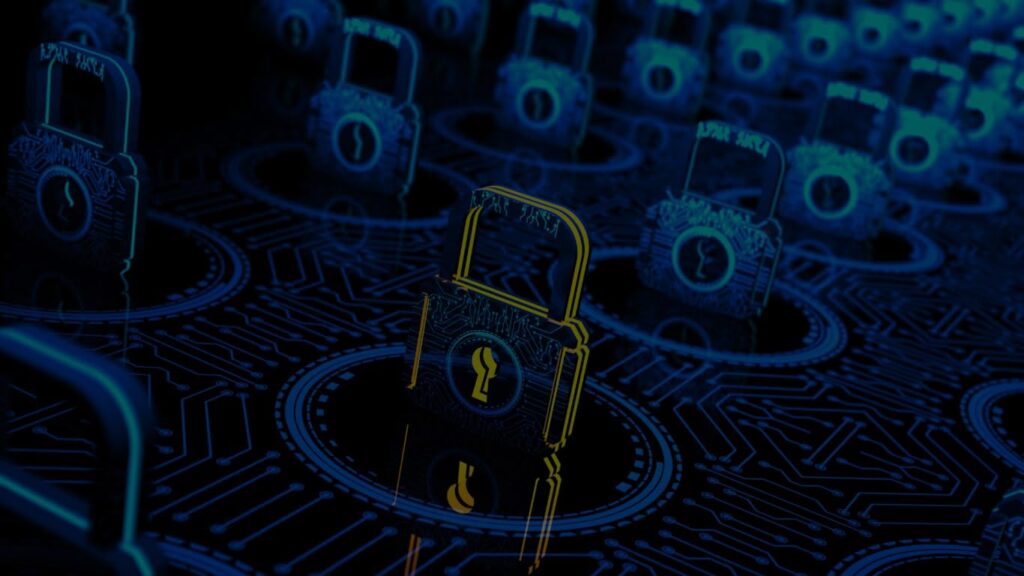How often have you ignored a system update on your work computer? A simple mistake like this could cost your business a major data breach, driving away clients and compromising proprietary information. The best way to prevent cybersecurity issues like these is to arm yourself with research and act quickly to mitigate the damage. Learning from some common, deadly cybersecurity mistakes can help you keep your business safe and secure.
Outdated Software
When any of your programs or systems are outdated, it can make you vulnerable to attack. When your system updates, so does its protection against current cybersecurity threats. Not updating won’t protect as thoroughly. Older systems may have weaknesses that hackers and cybercriminals can exploit more easily. Be sure to update all apps, programs, and operating systems when they become available. Automated updates are a smart choice to outfit your data with the latest protection.
Weak Passwords
It may be easier to use a simpler password or one you’ve used before, but doing so risks your data. Cybercriminals are able to decrypt password combinations easily when you use a simple one. Previously used passwords may have already been compromised, and those passwords will be the first options hackers can check. Proper password hygiene is important; don’t use passwords you’ve used on other websites or programs. Make passwords complicated with a combination of letters, symbols, numbers, and capital and lowercase letters. Don’t share passwords through unprotected channels. If you have trouble remembering these passwords, use a reputable password manager to help you access them securely.
Not Hiring Experts
Businesses need high-end cybersecurity practices to protect their data and assets. Security breaches can ruin a business. Cybersecurity must be taken seriously to prevent losing clients and breaching sensitive data. Most companies either hire a cybersecurity team or outsource it; either option is a good choice, but you’ll want to make sure they’re qualified and experienced. You’ll want to start searching for experts who are local to your business for convenience, but this can be tricky. Some cities are well-known tech hubs, like San Antonio or San Francisco. Due to the heavy saturation of IT experts in cities like San Antonio, it can be tough to narrow down who to hire. You’d want to compare the top-rated IT services in San Antonio and get the best rates and most qualified experts for your industry.
No Employee Training
You’ll want to officially train your employees in cybersecurity practices. Not doing so can lead to miscommunication and compromised data. Be certain all of your employees are familiar with your company’s cybersecurity standards. With proper training, you can ensure all staff members practice password hygiene, routine software updates, regular backups, and more. You shouldn’t assume all staff members are familiar with the best cybersecurity methods, even if they are young or tech-savvy.
Lapses in Data Backup
When the worst-case cybersecurity scenario happens, you may need to wipe or revert your systems. While inconvenient, it’s not a major issue if you’ve regularly backed up your data securely. When you don’t back up data, your recovery plan will take much longer. You may lose most or all important work, frustrating staff and clients alike. Significant delays may even cost you your business. Create multiple backup options and regularly update your backups on a schedule. When threats like ransomware attack, you’ll have access to your data without issue.
Unsecured Devices
You’ll want to make certain that all devices that can access your business’s data are secure, especially if you allow remote work. Your employees’ home computer systems may not be updated or equipped with decent antivirus programs. Even if all employees work in the office, they may access email or documents on unsecured phones, which can easily compromise data. Properly educate employees on the best cybersecurity practices on all devices. Provide employees with your commercial antivirus software for all devices. Multi-factor authentication is another good way to protect data. Alternatively, you can create policies that disallow personal devices from accessing work data.
Inefficient Cybersecurity Policies
You will want to create official rules and policies regarding digital data protection and cybersecurity. When company policies are lax or insufficient, you’re more vulnerable to data breaches. Make sure all employees are aware of what they should and shouldn’t do to create a safe and secure digital environment. Create official documents that are widely available and accessible regarding your policies, including cybersecurity. You’ll want a protocol for data breaches or cybersecurity incidents as well; a swift response can control a lot of damage in many circumstances. A cybersecurity team can help you create the best policy for you, your data, and your employees.
Conclusion
You don’t need formal training to understand the best strategies for preventing major data breaches. Hire or outsource a qualified IT team to help you create policies and practices that protect your business from cybersecurity issues. Keep systems and passwords updated while avoiding simple or previously used passwords. Educate your employees on the official cybersecurity policy and make documentation easy to access. All you need to stay on top of your business’s cybersecurity is an efficient plan to protect your data and respond effectively if a breach does occur.





